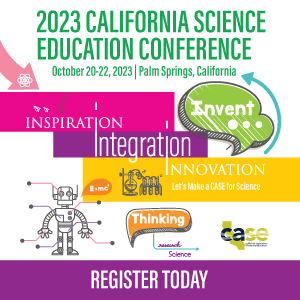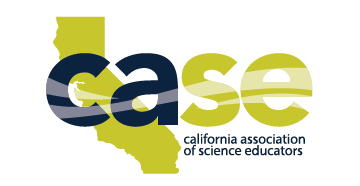
Short Courses
SHORT COURSES
Want to dig deeper? Excited to learn from seasoned experts in the field? Wish you could have a guaranteed seat in the room? Do you enjoy a smaller session with more presenter interaction? Then conference short courses are calling your name!
CASE is proud to present an amazing lineup of short courses for this year's conference. These short courses are designed to help you dig deeper into NGSS, engineering design, and more. Each short course's duration is three to six hours, giving you the chance to really interact and make sense of the material.
Short courses are ticketed events, guaranteeing you a seat in the room and relevant hand-outs. You will have hands-on experiences that are designed to help you envision relevant to use in your classroom. Many short courses will also provide you with sample materials that are ready for use. Be sure to sign up for these soon—we expect these short courses will sell out fast this year!
If you are in need of support by your district, you can remind your administrator that the District's Local Control Accountability Plan (LCAP) Priority #2 supports the implementation of the state's academic standards. CASE's Conference on Science Education will provide you with short courses that will help you with this. All short courses support the California Next Generation Science Standards (NGSS), the California Common Core State Standards, or both. The short course descriptions below include the following information:
- title and brief description
- ticket price
- grade level that the course is best suited for
- the science that is the focus of the presentation
- the emphasis (up to three) of the course
- the name of the lead presenter and their affiliation
Friday, October 20 - 12:30 pm - 3:30 pm
SC01: Play-Based Science in Early Education (TK-2)
Explore developmentally-appropriate practices for engaging young children in hands-on, integrated science education. Participants will investigate how to develop play-based learning opportunities in early childhood science that align with the California Preschool Learning Foundations for Science and NGSS.
- Tickets: $15
- Grade Level: TK - 2
- Science & Emphasis: All
- Presenters: Ryan Kurada
SC02: Experiencing the NGSS Toolkit for Student-Centered Assessment
Experience tools, processes, and collaborative professional learning from an NGSS Toolkit for Student-Centered Assessment designed to guide educators in: 1) analyzing their current assessment system; 2) establishing clear goals for student performance; 3) evaluating assessment tasks; and 4) designing formative and summative assessments aligned to NGSS.
- Tickets: $15
- Grade Level: ALL
- Science & Emphasis: Chemistry; Earth/Space Science; Environmental Science; Life Science/Biology; Physical Science; Physics
- Presenters: Maria Simani
SC03: Scientific and Engineering Practices: Building a Night Light and More
Scientific and Engineering Practices: Use the phenomena of a night light to design, build, and refine a device that works within given constraints to convert one form of energy into another form of energy using free, open-source software and hardware.
- Tickets: $15
- Grade Level: 9th - 12th
- Science & Emphasis: Computer Science; Engineering; Physical Science
- Presenters: Laura Peticolas, California State University, Sonoma; Lynn Cominsky, Sonoma State University; Patricia Halpin, SSU -EdEon STEM Learning
Saturday, October 21 - 8:00 am - 11:00 am
SC05: Explore tools for teaching/learning about climate change and earth systems
The Understanding Global Change Project (UGC) at UC Berkeley provides free, online, interactive classroom learning materials. Join us in an immersive learning experience using the UGC tools, as high school teacher leaders share their instructional units and how their students construct models about climate and environmental change using UGC resources.
- Tickets: $15
- Grade Level: 6th - 12th
- Science & Emphasis: Chemistry; Climate; Earth/Space Science; Environmental Science; Integrated Science (Bundled Across Domains); Life Science/Biology
- Presenters: Joanna Totino; Jessica Bean
Saturday, October 21 - 2:30 pm - 5:30 pm
SC06: Ancestry & Evolution: The Meaning of Race
Join the UCLA Science Project as we explore anti-racist approaches for students to engage in science and engineering practices as they learn about evolution and genetics.
- Tickets: $15
- Grade Level: 6th - 12th
- Science & Emphasis: Life Science/Biology
- Presenters: Zachary Cue, UCLA Science Project
Saturday, October 21 - 2:30 pm - 5:30 pm
SC07: Approaches to Equitable Science through Computational Thinking
Join the UCLA Science Project as we explore the systemic injustices of extreme heat on local communities through a series of learning experiences designed around Computational Thinking for Equity.
- Tickets: $15
- Grade Level: 6th - 12th
- Science & Emphasis: Chemistry; Climate; Earth/Space Science; Environmental Science; Integrated Science (Bundled Across Domains); Life Science/Biology
- Presenters: Justin Betzelberger, UCLA Science Project; Jon Kovach


